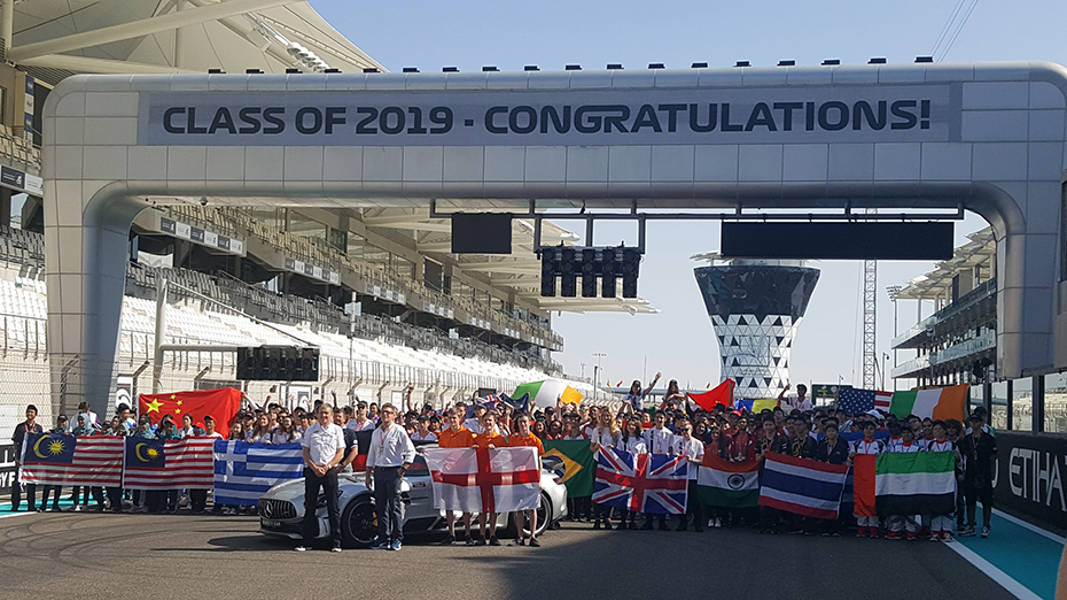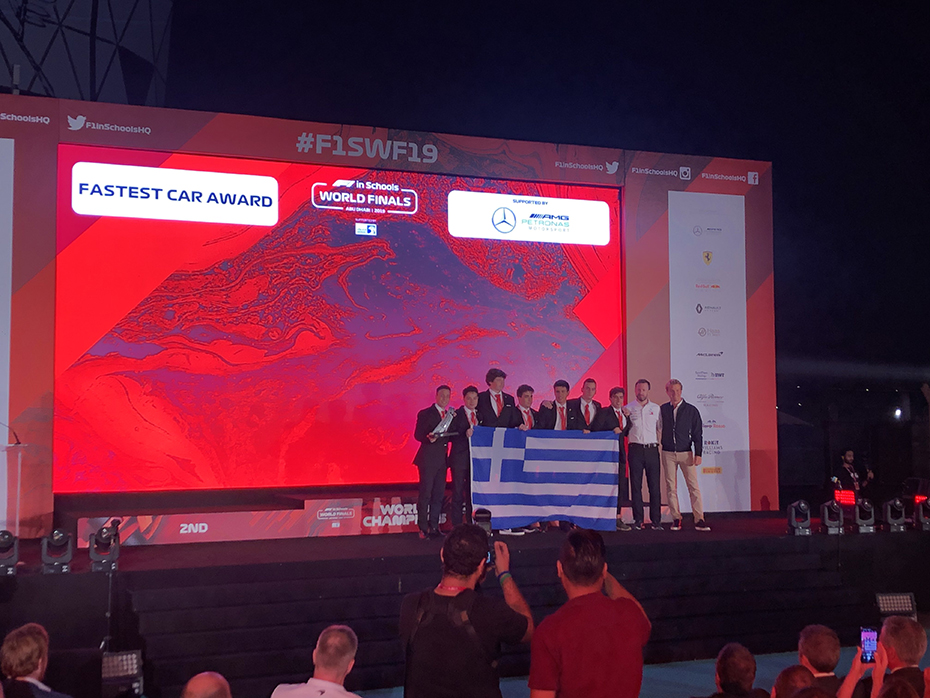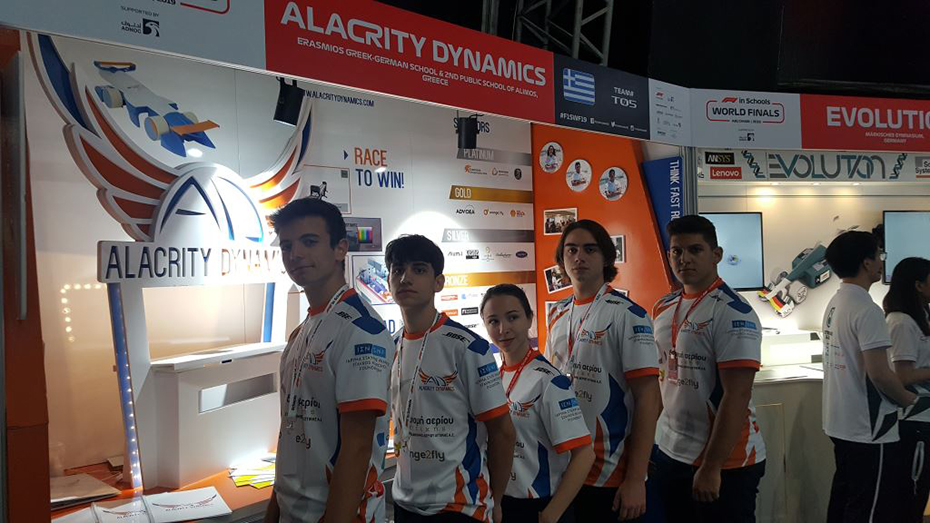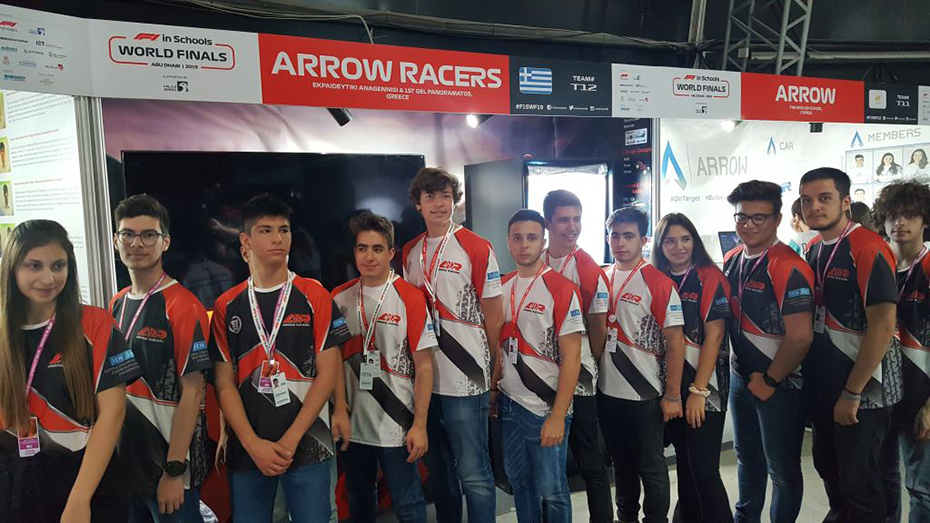
These Car-Racing Teams don’t have drivers, but they do have drive
With a sudden puff of air, months of hard work flash by in an instant.
“All those hours poured into our project, all that hard work is judged within a space of seconds, within a few hours,” said one contestant.
For most competitors, the race itself takes just over or under one second, to be precise. And at F1 in Schools competitions, precision is the name of the game. F1 in Schools uses meticulously crafted miniature racing cars as vehicles for helping students hone skills in science, technology, engineering, math, business, marketing, and management.
Unlike the track in which the model F1 cars are raced, the road to success in the competition is not always smooth. “This journey started for me when I was in my last year of middle school at Anatolia College,” said former racer Nikos Samaras. “I always loved cars, so in 2014, I formed a team with three friends and participated in a contest. It didn’t go well. We finished last.”
But Nikos stuck with it. In 2015, he was captain of Team Reset. The competition encourages participants to build business savvy in pitching their project to sponsors to raise funds. When Team Reset reached the fundraising stage of the competition, they reached out to the Stavros Niarchos Foundation, and the Foundation’s Co-President, Andreas Dracopoulos, met personally with Nikos.
“To be able to offer young people the opportunity and the means to create, to innovate, to explore their talents and ultimately to excel is so important,” said SNF Program Officer Aristi Stathakopoulou.
Two SNF grants have supported 50 teams of Greek students from public middle and high schools and 10 teams from elementary schools in taking part in the program since 2017. The focus of that grant support has been on schools that might otherwise lack the resources to enable a team to participate.
Though centered on a physics-oriented final product, the competition aims to inculcate a much broader set of skills. Team members also need to develop a business plan, create a team brand and marketing strategy, cultivate sponsorship, manage a budget, master design software, construct a car, and plan a rigorous testing process. Each member has a defined role on the team, but all need to collaborate at each of these stages.
These other skills are not mere afterthoughts to how the car performs in races—teams are also judged on a display of their team brand, a verbal presentation overviewing the whole process, and a 20-page written report. “These students reached goals that even professionals have a hard time reaching,” said F1 in Schools Greece organizer Dimitris Polimatidis of the complex and interrelated tasks that must be mastered to advance in the competition.
One such experience-building task is fundraising. SNF support encourages teams to participate, but each team has to make a plan to raise additional funds. Give a man the resources to build a tiny F1 car and he’ll race for a day. Teach a man to gain sponsors for his F1 car and he’s gained business savvy for life.
Formula 1 might seem like an odd thematic candidate for an educational program that aims to reach a broad group of young people. F1 racing is decidedly not an amateur pursuit, nor one designed for young people, and it requires intensive inputs of equipment, manpower, and capital. The beauty of F1 in Schools is that students, most of whom cannot drive a car, are still pulled into the excitement of the race and the extensive teamwork and technical knowledge it requires. SNF supports organizations working to increase access to knowledge and resources, and F1 in Schools makes some of the most valuable elements of an elite sport accessible to a broad population.
And the competition has clearly inspired excitement and dedication in its broad following. “To dedicate months of work and, if needed, stay up late into the night, you need to love what you are doing,” said Christos Gagas, a member of NewGen Tachytis, one of the teams supported by SNF in 2018.
Of the ten SNF-supported teams that made the Greek national finals this year, three finished among the six winning teams. The members of those six winning teams, coming from both public and private schools, reformed into three combined Greek national teams: Alacrity Dynamics, Arrow Racers, and Anemos Racing. Those teams traveled to Abu Dhabi in late November to compete with 52 other teams from around the world. Arrow Races won the award for fastest car, and each of the Greek teams finished in the top ten overall.
Gagas’s takeaway from his experience participating last year: “Through hard work, dedication, and love, we can achieve anything.”



